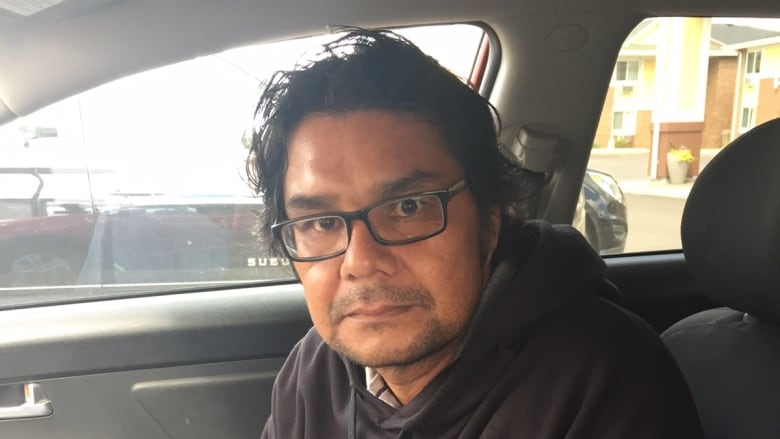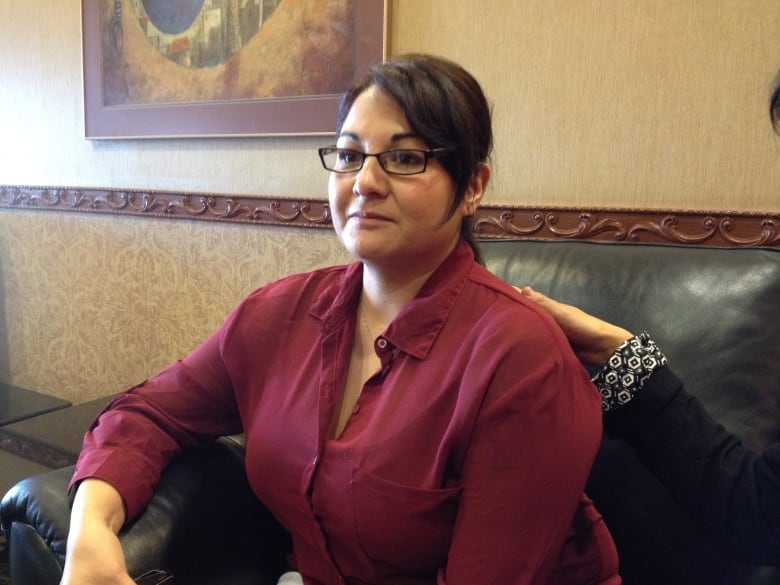Manitoban taken during Sixties Scoop returns after 2 decades behind bars in U.S.
Eric Orgeron, 2 siblings sent to live with Louisiana family in mid-70s after parents killed in crash

EricOrgeron was born in Birch River, Man., in 1972, but you wouldn't know it to hear his voice, as he pronounces each word with a subtlesouthern drawl.
That accent is one of many lasting impressions left with Eric after a life spentdivorced from his Indigenous roots.
"I felt out of place from the beginning," Eric saidover the phone from Brandon on Sunday.
After serving more than20years behind barsin the southern U.S. for manslaughter following a fatal bar brawl in his late teens, the Manitoba-born 43-year-old is now free and returned to hishome province Saturdayhoping to reconnect with his pastand start over.
"All of this has happened because of the Sixties Scoop," Eric's sister MarleneOrgeronsaid.
"Part of the reason he was such an angry young man is because of the adoption and where we were placed and that we were taken away from our family."
Sixties Scoop
Eric, Marlene andtheir brotherwere sent to live with a white family in New Orleans,La., in 1978 as part of the infamous Sixties Scoop, which saw an estimated 20,000 First Nation, Mtis and Inuit children taken away and placed with mostly white families between the 1960s and 1980s.
- Manitoba Sixties Scoop apology moves indigenous families to tears
- Manitoba premierapologizes for Sixties Scoop
They had been living with an uncle in Shoal River, Man., aftertheir parents were killed in a car crash. Marlene sayssocial workers told them heruncle didn't have a right to raise his niece and nephews.

Ericsays his youth in the U.S. was characterizedby abuse and the constant threat of punishment from hisadopted parents.
"The way I see it now is I got sent to people that really didn't have any business having kids in their house," he said. "If I didn't act the right way, I got punished. It was kind of rough."
The kids weren't allowed to contact anyone back home, Eric said, and subsequentlylost touch with their traditional Indigenousculture, as many affected by the Sixties Scoop did.
'I was stuck in this spot'
Looking back at it now, Eric believes his troublesome behaviour as a teen was partly to blame onbeing disconnected from where he was from.
"In my teens. I started trying to get away.I had run away, but I guess I had a lot of anger built up. I ended up going to juvenile and things just kind of got worse from there:got off into alcohol, drugs, fighting all the time," Eric said.
"I just had a whole lot of resentment, hate and anger. For the longest, it felt like there was nothing I could do.I was stuck in this spot."
Eric was released from jail on Aug. 14. He and Marlenecrossed from the U.S. into Manitoba Saturday morning without a hitch, although there were fears Ericmight get turned awayat the Emerson, Man., border.
"I was worried about it, boy. I was going to be stuck,"Eric said. "We were pulling up and I was kind of nervous My sister, they all worked so hard."
Eric tried to get his hands on proper identification to make for a smooth border crossing. In the end, all he had was a Canadian birth certificate,a prison ID, release papers and a note from his First Nation that attested to the fact that he is from Manitoba.
"Once he [the border guard] handed my paperand shook my hand and told me good luck, a weight had lifted," Eric said."It was nice."
Time to adjust
Now that he is back on Canadian soil, Marlene said Eric will be living with her in Brandon for a while.
"All my brother wants to do is come home and start his life. He's never had a chance to live a life," she said.
Ericsaid he hopes living with his sister will help him adjust to modern life.
"She's going to help me with little things like this cellphone," Eric said."I really need to find a job, because that's important to me. I got this deal where I feel like I got to stay on track.
"I feel real good that I am out, but you spend that many years incarcerated and you get into this routine, this way of thinking, 'This needs to be done, this needs to be done,' and that's all there is. You don't really have time to stand around, sit around and think about what's going on around you."
After all that he has been through, Eric saidhe takes comfort in knowing people like his sister have his back.
"I'm really glad that I've got the family I do, because they can understand my position.My littler sister does. She's going to help me out," he said."And I've got a lot of family to visit. Hopefully they'll understand that I need to do it a little bit at a time."
With files from Courtney Rutherford, Susan Magas and Austin Grabish












_(720p).jpg)


 OFFICIAL HD MUSIC VIDEO.jpg)
.jpg)



























































































